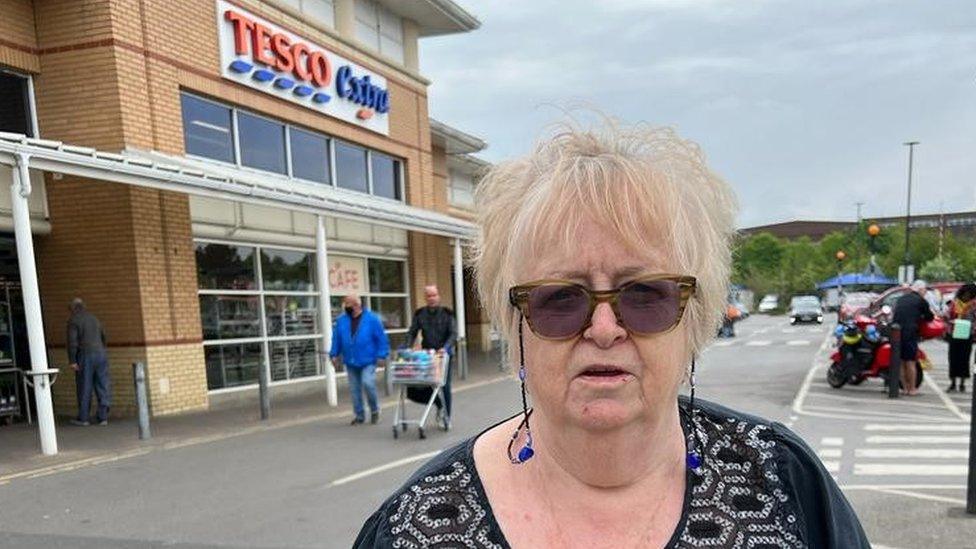Self-service: Booths supermarket puts staff back behind its tills
- Published
- comments
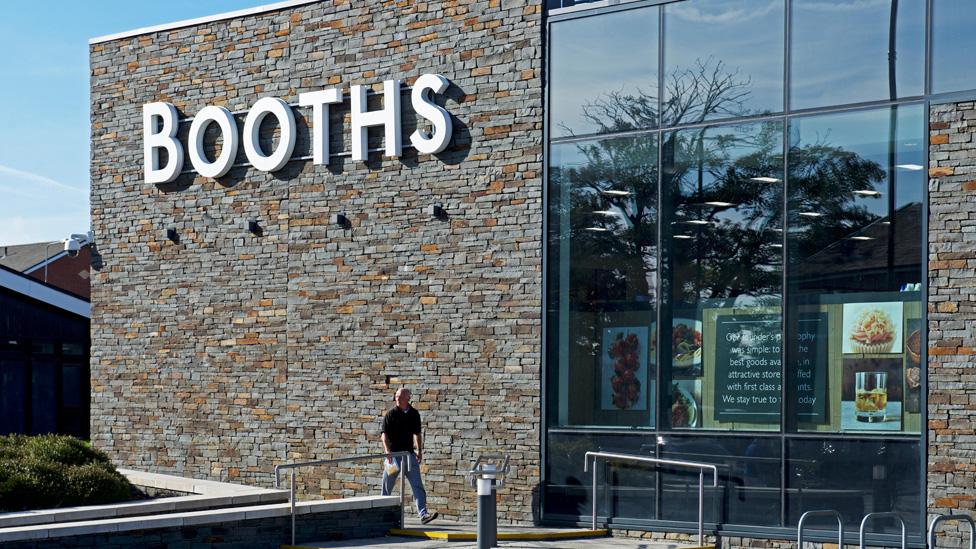
Booths, which was founded in Blackpool in 1847, says the move is the right thing to do
Supermarket chain Booths is axing almost all self-service tills in its stores in what it says is a response to customer demand.
All but two of the 28 stores run by the company, which trades in northern England, will have staffed checkouts.
The exceptions are Keswick and Windermere, two of its Cumbria shops.
The firm, which has 16 stores in Lancashire as well as outlets in Yorkshire and Cheshire, said the policy was driven by customer feedback.
Booths is believed to be the first UK supermarket to move away from using self-service tills, which have become increasingly common in recent years.
"We believe colleagues serving customers delivers a better customer experience and therefore we have taken the decision to remove self-checkouts in the majority of our stores," the company said.
Speaking to BBC Radio Lancashire, Booths managing director Nigel Murray, said: "Our customers have told us this over time, that the self-scan machines that we've got in our stores they can be slow, they can be unreliable, they're obviously impersonal.
"We stock quite a lot of loose items - fruit and veg and bakery - and as soon as you go to a self-scan with those you've got to get a visual verification on them, and some customers don't know one different apple versus another for example," he added.
"There's all sorts of fussing about with that and then the minute you put any alcohol in your basket somebody's got to come and check that you're of the right age."
Mr Murray added: "We are a business that prides ourselves on the high standards and high levels of warm, personal care.
"We like to talk to people and we're really proud that we're moving largely to a place where our customers are served by people, by human beings, so rather than artificial intelligence, we're going for actual intelligence."
The company, which has been described as a northern Waitrose, said its philosophy since 1847 is to "sell the best goods available, in attractive stores, staffed with first class assistants".
"Delighting customers with our warm northern welcome is part of our DNA and we continue to invest in our people to ensure we remain true to that ethos," the firm added.
They said: "We will retain self-checkouts in two of our stores in the Lake District in order to meet the needs of our customers during very busy periods."
One customer posted on social media that it was a "terrible decision", adding: "That's why you now spend time queueing and waiting."
However, Sue from Leyland, told BBC Radio Lancashire: "I think shopping is a boring, mundane thing to do and I think if staff are there chatting to you, it just makes it better."
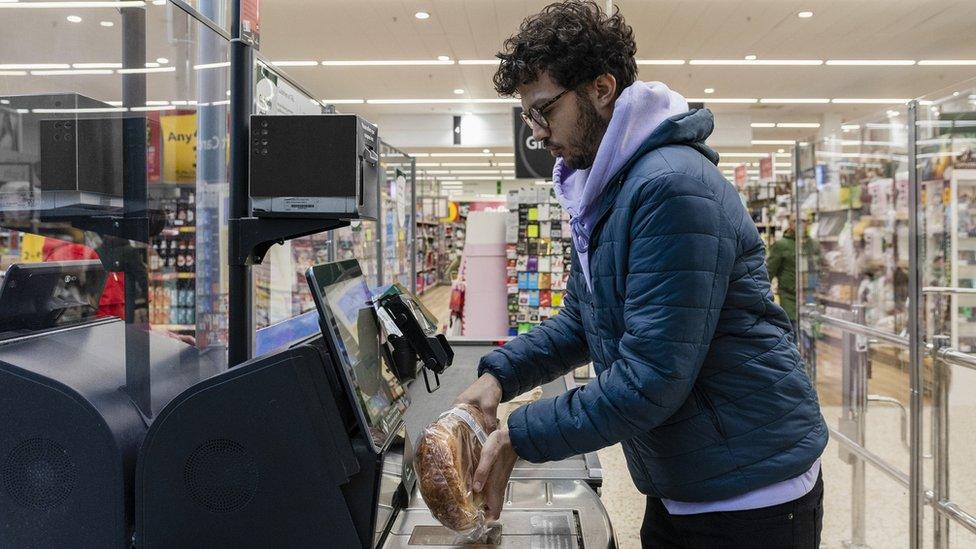
The self-service till began to become popular in the 1990s
The origin of the self-service checkout began with the invention of the automated teller machine in 1967.
A few decades later, the self-service till was invented by David R Humble, inspired by standing in a long grocery checkout line in south Florida in 1984.
The tills became popular in the 1990s and by 2013, there were over 200,000 in stores throughout the world and their numbers hit 325,000 by 2021.
'Somebody to talk to'
But many shoppers remain unconvinced, with one petition, external calling on Tesco to "stop the replacement of people by machines", gaining almost 250,000 signatures.
Pat McCarthy, who started the petition, previously told the BBC she wanted more cashiers on tills because "you can't speak to a machine".
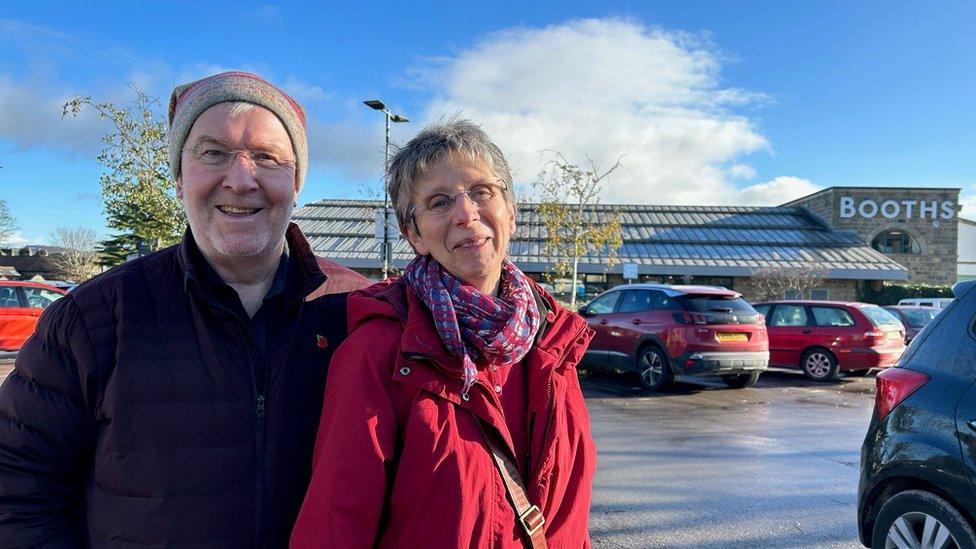
Shoppers in Yorkshire have welcomed the move
Sue and Paul Mansfield, 70, both from Menston welcomed the move by Booths, Mrs Mansfield said: "They are very good in terms of looking after their customers.
"All the way through Covid they responded to the fact that people didn't enjoy using them.
"Also they were not particularly reliable, I think they have changed in other places but I am very happy to be able to be served."
Mr Mansfield added: "I like to have somebody to talk to and for things to go on the conveyor belt."
But Steph Helliwell, 79, from Ilkley told the BBC self-service checkouts were a good option.
"In general they are a good idea because you can be so much quicker getting stuff, if there's a big queue," she said.

Why not follow BBC North West on Facebook, external, X, external and Instagram, external? You can also send story ideas to northwest.newsonline@bbc.co.uk, external
Related topics
- Published10 March 2023
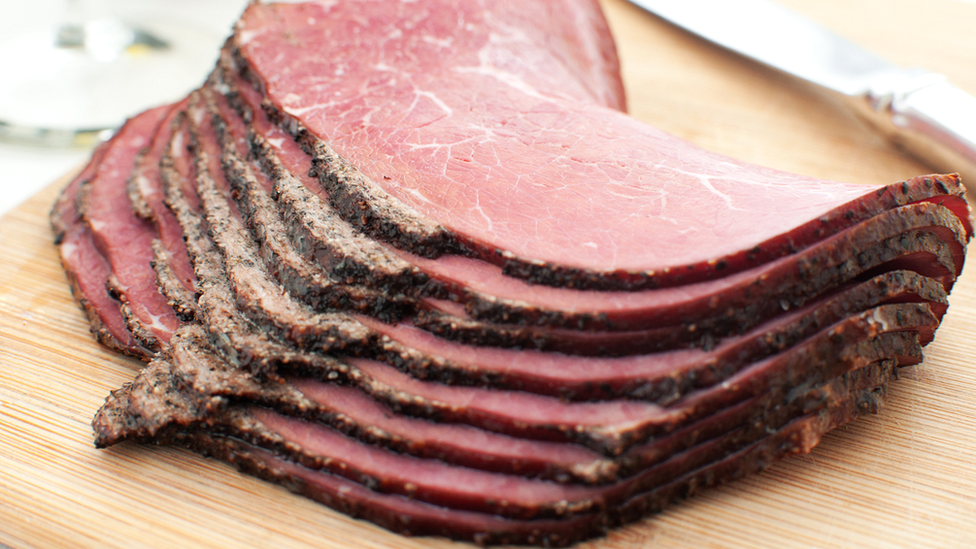
- Published21 May 2022
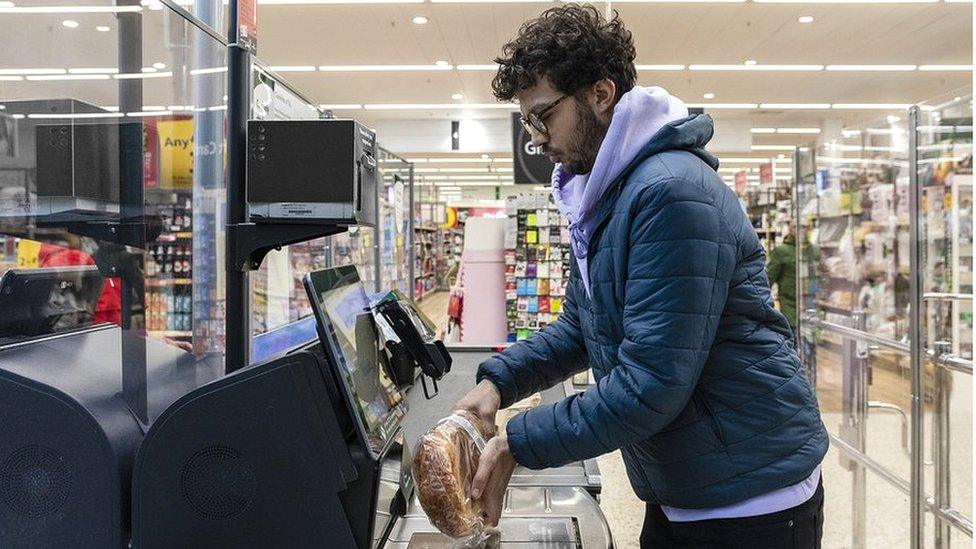
- Published18 May 2022
